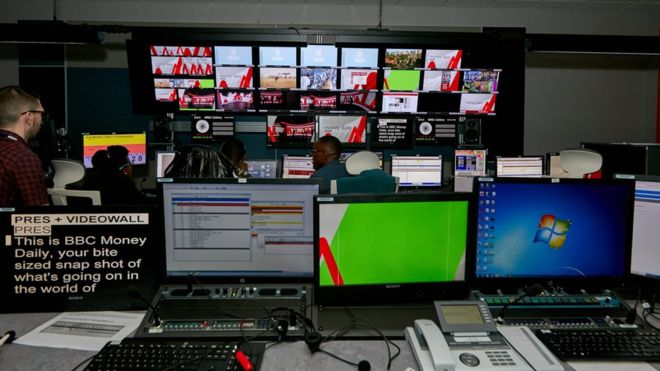The BBC launched its largest bureau outside the UK in Kenya’s capital, Nairobi, on 5 November. Around 300 of the 600 BBC journalists working across Africa are based in the new, state-of-the-art facility.
“Our most important investment will be in training the next generation of African reporters and producers to world-class standards,” Francesca Unsworth, Director of BBC News, said.
The expansion is being funded by $376m (£289m) from the UK government and the production facilities at the bureau include a TV studio and two further live broadcast positions, two radio studios, two radio workspaces and five TV edit suites.
The Nairobi bureau follows the opening of another major hub in Nigeria’s commercial city of Lagos, where three new language services are based, while there has also been an expansion of the French service based in Senegal’s capital, Dakar.
“We are celebrating the African journalists and programme makers here today who will carry the torch of BBC professionalism, accuracy and impartiality into the future,” Rachael Akidi Okwir, Head of East Africa Languages for the BBC World Service said.
Nairobi-based BBC services: Afaan Oromo: Language of Ethiopia’s biggest ethnic group; Amharic: Ethiopia’s official language; Tigrinya: The main working language of Eritrea, along with Arabic. Also spoken in Ethiopia
Lagos-based BBC services: Igbo: An official Nigerian language. Also spoken in Equatorial Guinea; Yoruba: Spoken in south-western Nigeria and some other parts of West Africa, especially Benin and Togo; Pidgin: A creole version of English widely spoken in southern Nigeria, Ghana, Cameroon and Equatorial Guinea
Photo: Armstong Too/BBC
